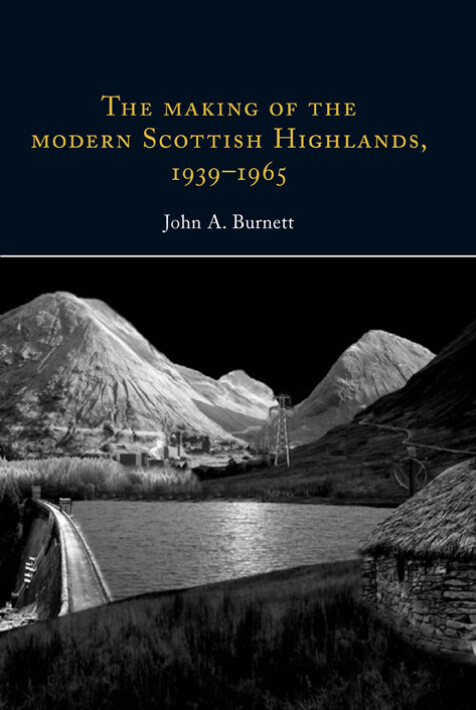The making of the modern Scottish Highlands, 1939–1965
Withstanding the 'colossus of advancing materialism'
John A. Burnett
‘Excellent and timely study … This book, with its considered, critical response to the immediately complex questions surrounding the Scottish highlands in the twentieth century, illuminates for the academic and lay reader some of the key paradoxes that bedevil the subject in the kind of balanced manner that was, and sometimes still is, distinctly lacking in political and economic debates over the region. A large part of the success of the book lies in its approach, which encompasses the more familiar narratives of governmental and economic policy with a more original examination of cultural and linguistic change … A glance at the bibliography will demonstrate this wide reach … a necessary and welcome study … by focusing on a concentrated time period, the author brings something very new to the table in terms of approach, sources and conclusions … stimulating', Annie Tindley, Journal of Scottish Historical Studies (2013).
‘The making of the modern Scottish Highlands sets out to examine a relatively understudied period in Highland history, that from the outbreak of World War II in 1939 to the establishment of the Highlands and Island Development Board in 1965 … the book elucidates an important, and much-neglected, era in Highland history … it highlights the conflict between the reforming desire to improve living conditions and reduce depopulation, and the conservative desire to retain the Highlanders’ unique cultural identity, which was in danger of being eroded … Burnett provides a detailed examination of the issues at play o all sides, and highlights the difficulties and complexities of dealing with a region that has suffered from historic misrepresentation, where there is more than one mother tongue, a diversity of local economies and “ways of living”, and a population that has for many years felt maligned and disregarded by those in authority’, Dr Catriona Mackie, Northern Scotland (Spring 2015).
‘Among the key strengths of Burnett’s book are his examination of the way in which the social construction of the “Highlands” was intellectually manufactured in the period after the First World War, and the attention he pays to the plethora of different interest groups that sought to promote their own particular agenda … It is this attention to the complexities and detail of the debate that gives Burnett’s book its real strength and distinctive quality. By placing culture at the heart of the political debate about the future of the Highlands which raged throughout most of the twentieth century, this book offers a fresh perspective that has more depth and colour, and probably gets nearer the truth, than previous studies which have overwhelmingly focused on administrative, political and economic structures … [Burnett] clearly has the ability to get inside the minds of many of the commentators he discusses … He is careful to report and analyse the debate in an objective way and does justice to the wide range of material that he uses … this book is a welcome corrective that helps to recapture the passion and colour of one of the most longstanding issues of Scottish politics in the modern era', Richard J. Finlay, EHR (June 2013).
‘A beautifully assembled account of the mid-20th century Gaidhealtachd … a fascinating and provocative book', Roger Hutchinson, West Highland Free Press (21 October 2011).
‘What makes the Highlands “different” and should that uniqueness be celebrated or disparage in the move toward modernity and raised living standards? That, in a nutshell, is the narrative of this highly detailed examination of the Highlands from 1939 to 1965, when the Highlands and Islands Development Board was formed. John A. Burnett analyses the weakening of Gaelic identity as a cornerstone of Highland society, and how this interplayed with the politics of both Scotland and the United Kingdom … What is laudable about this publication is that the author has given sympathetic exposure to the voices of the Gaels themselves, quoting liberally from a wide range of Gaelic writers and commentators, as well as giving space to some of the many Anglophone commentators … This book should be read by politicians, public servants and business people who are new to the Highlands and who have not been intellectually confronted by the challenges the region has faced in terms of depopulation, low incomes, language loss and cultural disempowerment', Cothrom (2012).
‘This well-written, interesting addition to the publisher’s “Ulster and Scotland” series places its focus squarely on the Gaels’ response to the vast and rapid socio-economic changes that dramatically impacted the Scottish Highlands in the immediate post-war period … Recommended', S.M. McDonald, Choice (June 2012).

